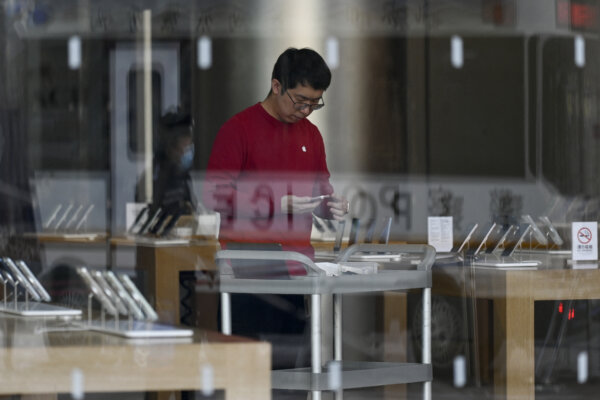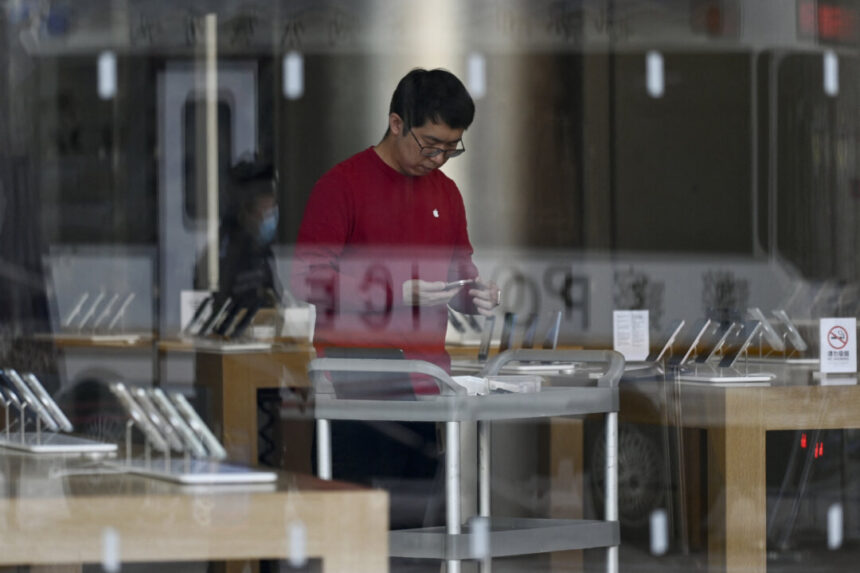
Commentary
Apple, the most valuable company in America by market capitalization, is facing challenges in China. This likely influenced Berkshire Hathaway’s decision to sell over $80 billion worth of Apple shares in the second quarter.
The decline in iPhone sales in China over the past year has been significant, with local companies like Huawei, Xiaomi, Vivo, Oppo, and Honor leading the market. Despite efforts to sell products like the Vision Pro in China and other Asian markets, Apple has experienced lackluster sales.
Apple’s sales in China have declined for four consecutive quarters, with a recent decline of 6.5 percent. The company now holds the sixth position in smartphone sales in China, with only 14 percent market share.
The increasing geopolitical competition between the US and China has put pressure on Apple in the Chinese market. The Chinese Communist Party’s actions, such as banning Apple from regime use, have also affected the company’s market share.
Despite challenges in China, Apple’s global sales in the third quarter exceeded expectations, driven by increased iPad and Mac sales. The incorporation of AI into future phones has been well-received and is expected to boost sales with the upcoming iPhone 16 release.
Apple could potentially recover its losses in China by focusing on markets like India, where it currently sells a small percentage of its iPhones. However, production problems and competition from cheaper local models pose challenges in the Indian market.
The struggles faced by Apple in China serve as a warning for international investors. Investing in countries with democratic values may be a safer bet in the long run, as ideological barriers and market challenges in communist countries like China can impact business operations.
The lessons learned from Apple’s experiences in China highlight the importance of understanding market dynamics and aligning investments with countries that uphold democratic principles.
Views expressed in this article are opinions of the author and do not necessarily reflect the views of The Epoch Times.





